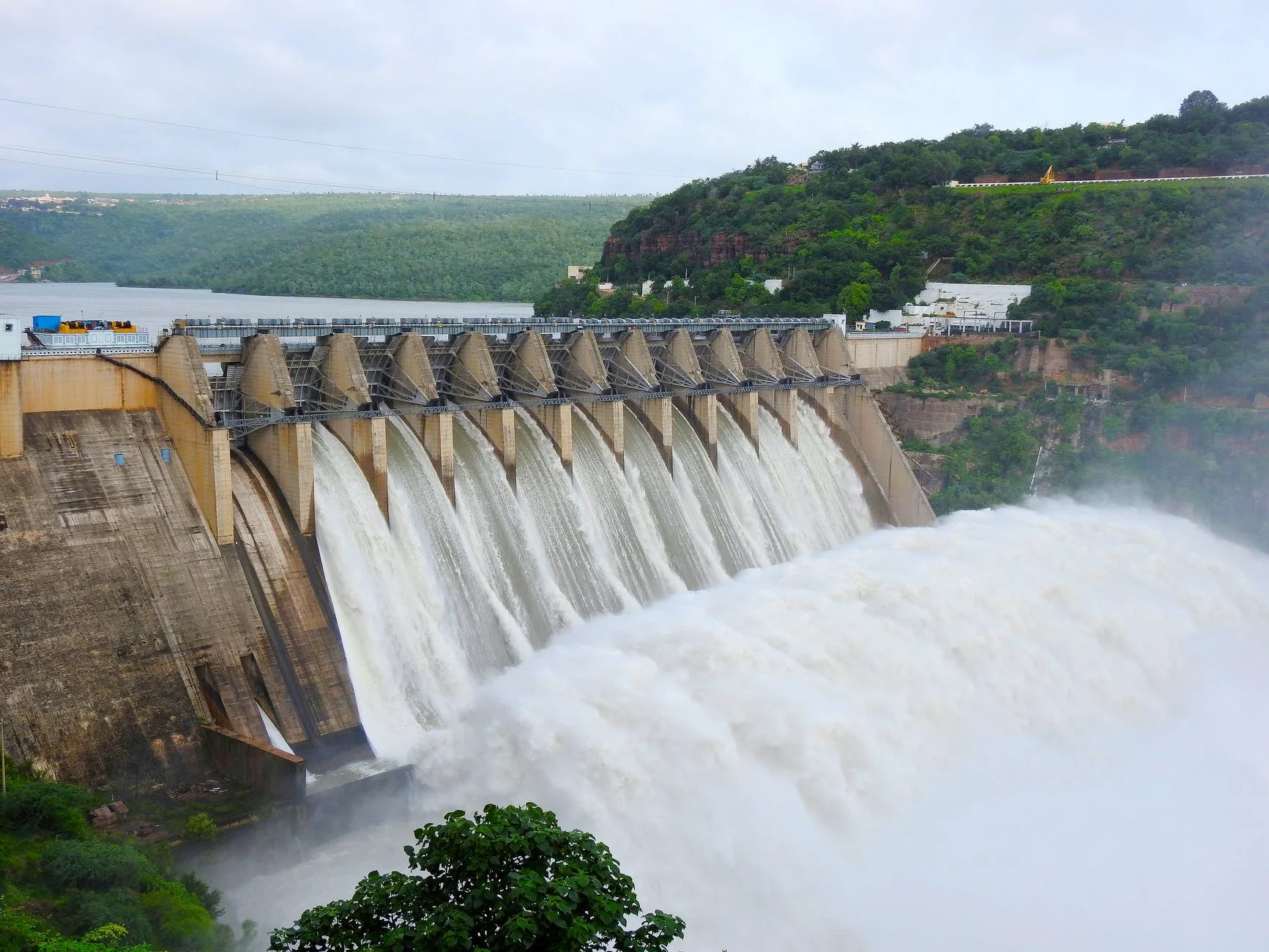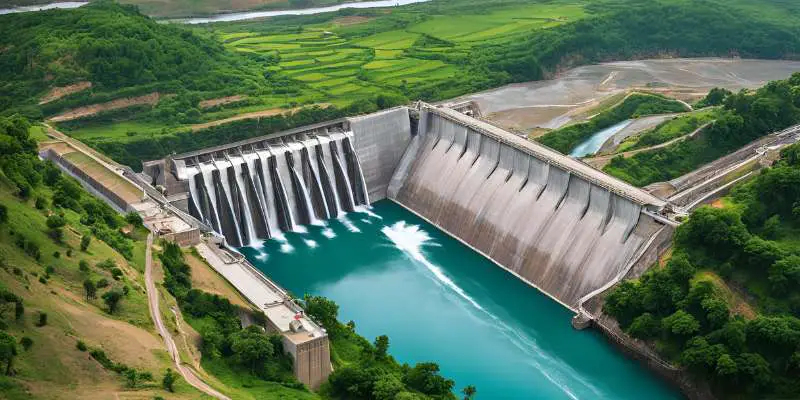India has over 200 hydro power plants. These plants play a crucial role in the country’s energy supply.
Hydro power plants harness the energy of flowing water to generate electricity. They provide a clean and renewable source of energy. In India, the use of hydro power has a long history. The first hydro power plant was established in 1897.
Since then, the number of plants has grown significantly. Today, hydro power contributes to the country’s energy security. It helps reduce reliance on fossil fuels. This is crucial for environmental sustainability. Understanding the number and importance of these plants is essential. It highlights India’s efforts in promoting green energy. Let’s explore more about hydro power plants in India. Their distribution, capacity, and impact on the energy sector.

Credit: www.blackridgeresearch.com
Introduction To Hydro Power In India
India has a long history with hydro power. The first hydroelectric plant was set up in 1897. It was at Darjeeling. Since then, many more plants have been built. Hydro power uses water to make electricity. This type of energy is clean and renewable. It helps reduce pollution and saves resources. India has used rivers and dams to generate power. Large projects were started after independence. They brought power to many homes and industries.
Hydro power is very important for India. It provides a large part of the country’s electricity. This energy is reliable and constant. Hydro power plants can start quickly when needed. They help balance the supply and demand of electricity. Using water to make power reduces the use of fossil fuels. This helps in fighting climate change. Hydro power also supports irrigation and water supply. It helps in flood control too. Many people get jobs because of these plants.
Major Hydro Power Plants
The Tehri Dam is in Uttarakhand. It is one of the tallest dams in the world. It stands at 260 meters high. The dam helps in generating electricity. It also provides water for drinking and irrigation. Many people visit the dam to see its beauty. The dam can generate up to 1,000 MW of power. It is very important for the region.
The Bhakra Nangal Dam is in Himachal Pradesh. It is one of the largest in India. The dam is on the Sutlej River. It helps in generating hydroelectric power. The dam provides water for irrigation. It also helps control floods. Many tourists visit the dam each year. The dam can generate up to 1,500 MW of power. It is very important for the country’s power needs.
State-wise Distribution
The top states with hydro power plants are Himachal Pradesh, Uttarakhand, and Maharashtra. Himachal Pradesh has many plants due to its rivers. Uttarakhand has many due to the Ganga river. Maharashtra also has many plants.
North India has the most hydro power plants. This is due to the many rivers and mountains. South India has fewer plants. The Western region has a good number of plants too. The Eastern region has the least number of plants.
Capacity And Output
India has many hydro power plants. These plants use water to make power. The total installed capacity of these plants is very high. It is around 46,000 megawatts. This is a big number. It means these plants can make a lot of electricity.
Each year, hydro power plants in India make a lot of energy. They make more than 150 billion units of electricity. This helps the country in many ways. It is clean and helps save other resources. Hydro power is very important for India’s energy needs.
Technological Advances
Modern turbines are key in hydro power plants. They convert water flow into electricity. These turbines are more efficient now. They generate more power with less water. This helps save resources. New materials make them last longer. They need less maintenance. This reduces costs for power plants. Small plants benefit a lot from this.
Automation and control systems are essential. They manage the plant operations. These systems ensure smooth running. They monitor all parts of the plant. This helps in quick problem detection. It improves safety and efficiency. Operators can control the plant remotely. This saves time and effort. It also reduces human error. These systems are crucial for modern hydro power plants.

Credit: www.geeksforgeeks.org
Environmental Impact
India hosts over 200 hydro power plants, contributing significantly to renewable energy production. These facilities help reduce carbon emissions and promote sustainable development.
Benefits For Ecosystem
Hydro power plants can help the environment. They create clean energy. This reduces air pollution. They also help control floods. Fish can swim better with fish ladders. Plants near dams grow well. Water flow is managed. This supports animal life.
Challenges And Mitigation
Building hydro plants can harm the land. Trees and plants get removed. Animals lose their homes. Water quality can drop. But there are solutions. Planting new trees helps. Creating animal paths is good. Cleaning water often helps too.
Economic Aspects
The cost to build a hydro power plant can be high. This includes money for land, materials, and workers. Maintenance also needs funds. Big projects can take many years to finish. Small plants may cost less but still need careful planning.
Hydro power plants create many jobs. They help local economies grow. Reliable power helps businesses run smoothly. Clean energy means less pollution. This saves money on health costs. Local people gain skills from jobs. These skills can be used in other work too.

Credit: www.instagram.com
Future Prospects
India is expanding its hydro power capacity. New plants are being built. Old plants are being upgraded. This helps provide more electricity. It also creates jobs. More water sources are being used. This ensures a steady power supply. Environmental impact is considered. Hydropower is a clean energy source. This benefits everyone.
The government supports hydropower projects. Policies are in place to encourage growth. Funding is provided for new projects. Regulations help maintain standards. This ensures safe and efficient operations. Incentives are given for green energy. This makes hydropower more attractive. Rules also protect the environment. This is important for sustainable development.
Frequently Asked Questions
How Many Hydro Power Plants Are In India?
India has over 200 hydro power plants. These plants collectively contribute significant energy to the national grid. The capacity varies from small to large-scale installations.
What Is The Total Hydro Power Capacity In India?
India’s total hydro power capacity is approximately 50,000 MW. This capacity is a crucial part of the country’s renewable energy portfolio. It helps in meeting electricity demands sustainably.
Which Is The Largest Hydro Power Plant In India?
The Tehri Dam is the largest hydro power plant in India. It has an installed capacity of 2,400 MW. Located in Uttarakhand, it plays a vital role in energy production.
How Much Energy Does India Generate From Hydro Power?
India generates around 150 TWh annually from hydro power. This energy supports various regions and industries. It is a reliable and renewable energy source.
Conclusion
India boasts numerous hydro power plants. These plants play a key role. They supply clean, renewable energy. Hydro power helps meet growing energy demands. It also reduces carbon footprints. Investments in hydro power continue to rise. This reflects India’s commitment to sustainable energy.
In future, more plants may emerge. This will further strengthen India’s energy infrastructure. Hydro power remains crucial for India’s energy needs. It supports both the environment and economy. Sustainable energy is the path forward. Hydro power plants will be vital in this journey.

My mission is to help you bring the beauty of nature indoors with expert advice, detailed plant care guides, and creative design ideas.





Leave a Reply